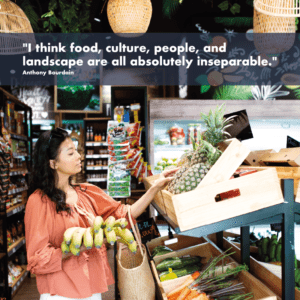
Food Bodegas: A New Retail Channel of Opportunity
Datz Deli in Hollis, Queens, is one of a handful of spots that have benefited financially from the social media boom — reportedly raking in $165,000 a month, according to CBS — and bringing in new customers often travelling to wait hours in line.
As restaurants and delivery services increase their prices and have to cope with higher food costs, higher labour costs, and a shortage of workers – the new bodega might just be a new retail solution. Supermarkets that are reimagining what their grocery or food hall formats should be, should take a trip to New York City and go bodega hopping. According to research, there are 13,000 bodegas in New York City alone.
Food bodegas in New York City are a quintessential part of the city’s culinary landscape. These small, independently owned convenience stores serve as neighbourhood hubs, providing a wide range of essential items, including groceries, household goods, and prepared foods. Here’s a closer look at food bodegas in NYC:
History: The word “bodega” is Spanish for “storeroom” or “grocery store.” Many bodegas in NYC are run by immigrants from various countries, and they have been a vital part of the city’s food culture for decades. They often reflect the diverse backgrounds of their owners, offering a mix of products from different cuisines.
Convenience: Bodegas are typically open 24/7, making them convenient for residents who need to pick up groceries or other items at any time of the day or night. This accessibility is especially valuable in a city that never sleeps.
Selection: While bodegas are small compared to large supermarkets, they often stock a surprisingly wide variety of items. You can find everything from fresh produce, dairy products, canned goods, snacks, and beverages to household essentials like cleaning supplies and toiletries.
Prepared Foods: Many bodegas also offer a selection of prepared foods, such as sandwiches, salads, hot dogs, and even hot meals like empanadas, tacos, or rice and beans. These quick and affordable meal options are popular among residents and workers looking for a fast lunch or dinner.
Local Favourites: Bodegas often have their own unique specialties and local favourites. Some may be known for their delicious sandwiches, while others might have a particular type of coffee, salsa, or snack that keeps customers coming back.
Community Hubs: Bodegas are more than just places to shop; they are often community hubs where neighbours gather and chat. The friendly and familiar atmosphere of these stores is an important aspect of their appeal.
Cultural Diversity: NYC’s bodegas reflect the city’s incredible cultural diversity. You can find products and ingredients from around the world, catering to the tastes and needs of the city’s many ethnic communities.
Challenges: Bodegas face challenges such as rising rents, competition from larger chain stores, and changing consumer preferences. Despite these challenges, many bodegas continue to thrive due to their loyal customer base and unique offerings.
Delivery Services: Some bodegas have adapted to the digital age by offering online ordering and delivery services. This has become especially important during times of crisis, such as the COVID-19 pandemic.
Regulations: In recent years, there have been efforts to regulate bodegas, particularly regarding the sale of tobacco products and their impact on public health. Some local laws have been introduced to restrict tobacco sales in these stores.
Food bodegas are an integral part of the fabric of New York City, offering convenience, character, and a diverse range of products that cater to the city’s eclectic population. They remain an iconic aspect of NYC’s culinary scene and daily life. They also provide food entrepreneurs with another retailing opportunity that is often overlooked.
Check out more articles, downloadable PDFs and links on our Resources Page
